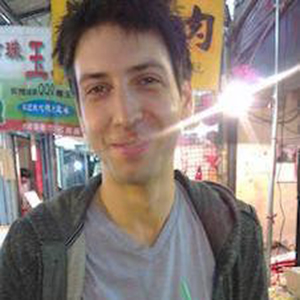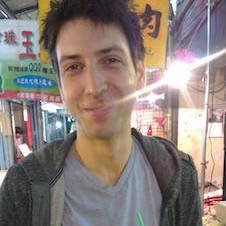
An informal group of faculty and students from the Computer Science and Engineering (CSE) department will hold a second meeting on Thursday, February 9 in CSE Room 1202 from 3pm to 5pm, with CSE professor and chair Dean Tullsen in attendance.
The meeting follows the first emergency meeting held on January 31 to discuss the Trump Administration's temporary ban on refugees coming to the United States, as well as a ban on immigrants coming from seven majority-Muslim nations. This series of meetings is meant to galvanize action and public support from member of the CSE community, but organizers welcome all interested students, staff, and faculty from throughout UC San Diego and the public at large.

fourth-year Ph.D. student in
Computer Science and an
informal leader of CSE activities
protesting the U.S. ban on
refugees and immigrants from
seven majority-Moslem nations.
According to fourth-year CSE Ph.D. student Zachary Lipton, one of the organizers of the Feb. 9 meeting, "this time will be less talk, more action. We'll plan to meet as a collective for 5-10 minutes and then split into small, autonomous groups to work on the hackathon, standing committee, fake news challenge, collection and dissemination of personal stories to combat misinformation, a course on protection against a surveillance state and a public art project to 3D print messages to the administration.:
Added Lipton: "This meeting is open to undergraduates, master's, and Ph.D. students, staff, and faculty," as well as other campus participants and the public at large.
Following is a recap of the January 31 meeting by UC San Diego student and staff writer Natasha Vyhovsky, reprinted from The Triton, an independent student-run news source for UC San Diego:
"The [Jan. 31] meeting was an open discussion that allowed attendees to share ideas and propositions. Discussion focused on the way UCSD considers applicants from the countries targeted by the executive order, and how UCSD and the CSE department can protect and educate its students.
One of the meeting organizers, Zachary Lipton, a fourth year Ph.D. student in the CSE department, said the meeting was part of an attempt to address the societal impact and responsibilities of scientists.
“It doesn’t seem to be a special or controversial opinion that what’s happening right now, in terms of the executive order, is a serious incursion on basic civil liberties and human rights,” Lipton said. “I have many colleagues in the research community who are directly affected by this in ways that are mind boggling.”
Lipton said the group gathered because scientists tend to be silent during conflicts, but hold the power of shaping the internet as a tool for the spread of information. He said the construction of websites and search engines and their algorithms is usually done in oblivion or ignorance that make it easy for people to be misinformed.
“I think we bear some kind of responsibility that we need to acknowledge for the technical environment in which Trump came to power,” Lipton said. “We’ve created tools, but we haven’t put out nearly enough people who are thinking critically about [the tools’] effects.”
He added that Iran, one of the seven countries targeted by the executive order, is the third largest source of international students in the CSE department at UCSD.
Participants focused on ways UCSD could commit to educating prospective students who are from countries affected by the order, like offering classes remotely through podcasting all core classes, or partnering with universities in Europe and Canada.
Group members identified a possible need to amend CSE curriculum to include an ethics course that educates students on the surrounding facts of the executive order, providing an interdisciplinary focus in the role computer science plays in social issues, like implicit bias in society and ableism. For the short-term, suggestions included a brief, optional class in the department to provide information regarding the executive order at this point.
Other proposed ideas included a call for UCSD to commit to a campus ban on immigration officials and military recruiters. Conversation also circulated around the idea of banning recruiters from companies that support the Trump administration or sit on his advisory board, which raised controversy among attendees. An alternative idea was to educate students at career fairs about what the recruiting companies stand for, so students could make their own decisions about where to work.

(M.S., Ph.D. '12, '14)
Discussion leaders also talked about forming a standing committee within the department to identify problems and form solutions for future executive actions that would impact communities at UCSD.
Nima Nikzad, a 2014 UCSD alumnus of the CSE department at the meeting, volunteered to lead a hackathon for students to collaborate on projects that address issues like privacy and access to information. Nikzad said the test-run for the event could be held in as soon as a week.
“It will be quite open-ended, but the idea is to provide critical skills to projects or organizations that may not have access to those kinds of skills typically,” Nikzad said. “Anything that would support students impacted by the recent executive order would be examples of projects we could support.”
Dissatisfied with the general statement released by UCOP Sunday, a UCSD faculty collective has drafted a new statement that is in the process of gaining signatures, which calls upon the UCSD administration to take direct actions and make specific commitments to its community.

